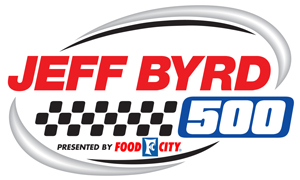NASCAR SPRINT CUP SERIES
JEFF BYRD 500 PRESENTED BY FOOD CITY
BRISTOL MOTOR SPEEDWAY
TEAM CHEVY DRIVER PRESS CONFERENCE TRANSCRIPT
March 18, 2011
JEFF GORDON, NO. 24 PEPSI MAX CHEVROLET, met with media and discussed key differences in today’s track at Bristol and previous one, the point structure, upcoming races, and more. Full Transcript:
Q. Describe the key differences between the way it used to be and the way it is here.
JEFF GORDON: Well, obviously more grooves to work with. I mean, I could go way back to the way it used to be, the way it used to be, watching guys run up against the wall. I ran a couple of the Nationwide races with the track like that. The track’s changed this. I really like what they’ve done here. It’s taken a little bit of a groove away that I kind of felt like I had figured out. Seemed like we could come here, and it didn’t matter where the car was at, I could get into that groove and just find my way around here and go fast, have a shot at winning the race. You used to have to almost run over the apron on the exits of the corners, and you can’t do that anymore. In fact, me running around the bottom isn’t the fastest way around here anymore. Seems like a little bit of a groove up seems to be the preferred place. Once you get into traffic and stuff, you can run anywhere. That’s what I like about it, is that you’ve got a lot of different grooves to work, to pass. I think it makes for some great racing. I don’t know if we see guys pushing and shoving one another out of the way quite as much. If anybody doesn’t like the new track or the new configuration, what they’ve done here with the changes as much as the old one, it would be for that reason. But from a driver’s standpoint, you like the ability to be able to get side-by-side, race hard, make the passing even harder than just shoving a guy out of the way. But that still may happen, too, so…
Q. Do you think if Dale Jr. were to win a race, that would make a difference with the headlines, take them from the NCAA tournament?
JEFF GORDON: I think Dale Jr. winning a race would steal a lot of headlines from anything. I mean, that would be huge. That would be a big deal. I think it would be great for the sport. It would be great for sports in general.
I think it’s something that has been a long time coming. I know how much it would mean to him and our organization. But, you know, I think it would make a huge impact, not just here in our series.
Q. How do you see that relationship right now with Stevie?
JEFF GORDON: I think they’re working well together. I think they’re really good together. I think Stevie pulls things out of Dale that are valuable to making them go faster. I think Dale adds something to Stevie to keep him kind of in check and calmed down as well, allow him to focus on his job.
I think they’re good together. I really like hearing them work together in our debriefs. I thought they ran really well in Vegas. I thought that was great.
Q. You were talking about the new track configuration. Do you think track position in qualifying matters as much as it used to be?
JEFF GORDON: Yeah, it’s always mattered here. Even though there’s multiple grooves now, it doesn’t make it any easier to pass. It’s still very difficult to pass. You can get side-by-side with guys, but to complete the pass, it’s very challenging. I think we’ve seen if you’re fast, you’re fast. You can move your way up through there. But it’s definitely more difficult. Here at Bristol, if you put yourself further back in the field at the start of the race, you’re putting yourself in jeopardy to be caught up in a wreck, even though you have a good enough racecar to go to the front.
Q. New points structure. What have you started to learn about what you have to do to maximize points?
JEFF GORDON: You know, I mean, to me all it’s done is simplify how you look at the number. It hasn’t changed anything as far as your finishes, where your finishes are going to put you in the standings. I mean, you know, we’ve had one great race and two bad ones, and we’re where I think we ought to be based on how we fought for the position in the points when we had those bad finishes like at Daytona when we got the car back out there and made up a few positions.
You know, other than it being simple to look at, at the number, the order in which we are, I don’t think that it’s any different than it would have been.
Q. This place is so unique the way it’s configured. Do you remember your first laps here? If so, what was your reaction?
JEFF GORDON: Well, you got to understand, I raced at Winchester, Salem, places that are as banked as this place. Running a sprint car or midget around this place, that’s a handful. So in some ways, you know, I felt like this was sort of in slow motion compared to those, but at the same time you’re trying to take a much heavier racecar around these corners. It was fun. I was excited to be here, thought it was very cool. Now, of course, Winchester and Salem don’t have 160,000 (indiscernible). The thing I remember the most about coming here the first time is that we parked the trucks out on the backside and you had to hire a U-Haul to bring your stuff inside. You worked out of the U-Haul truck. I remember that. But the first couple laps, I don’t remember. I don’t know if it was the first year race that I ran here, I just remember that I was about to lap Harry Gant, which was a pretty dang big deal. They had a red flag for some reason. After the red flag, I went backwards and Harry won the race (laughter). I remember that vividly.
Q. Even though they changed the track, it’s been a streaky track as far as drivers with success. You’ve had success here. Is there a reason this track, more so than others, if you find the right combination, you can continue to be successful?
JEFF GORDON: It’s kind of like what I mentioned earlier. With the old configuration, there were certain spots on the track that I felt if I just got my car there, that the car was going to turn, the car was going to get up off the corner well, then we would just complement that with the setup, which we’ve always had great racecars here. I felt like I could come here and not a lot changed. Cars didn’t change a lot; tires didn’t change a lot. We were always, you know, a threat for the pole and for the wins I felt like. I think that’s what happens over the years, is certain drivers, the car works well for them in the areas that they need it to work well, and they go fast. I think that, you know, that’s what I’ve been searching for a little bit here since they did reconfigure it, is for me to find that groove, that rhythm that I can get into, and then make sure that the car’s there to complement that. That’s what I’ve seen is more difficult now with this configuration. The car’s got to be right. There’s not a lot you can do as a driver compared to some of the things that you used to be able to do. The car’s really got to be right. I spent a lot more time in the shop the last couple weeks preparing for this race with the engineers about what we’re going to need to do to be fast here.
Q. Is one way better than another?
JEFF GORDON: No. I mean, obviously I ran better with the old one as far as being more competitive to win, so I’m going to lean more towards that one as far as how we run. But, I mean, if I can run good this weekend, there’s no doubt I’m going to like this one better.
Q. Talk about California, what it takes to get around there.
JEFF GORDON: It’s big and fast. You got to have the power down the straightaways, you got to have the grip in the corners, same as all the other big tracks. Certainly a track I love, look forward to going to, one we’ve had success at. Especially when I think of this team, I think of Alan and his group, they’ve run well there. They’ve run well here, too. To me, I look forward to going to every racetrack every weekend because it’s kind of like starting over and doing some new things that I look at their past performance and I look at their current performance. It’s got me really excited to go to the racetrack and see what we have for the weekend.
It’s a challenge. But I feel like we’re working well together and we’ve got fast racecars.
Q. Following the basketball tournament, filling out brackets?
JEFF GORDON: I haven’t, no. I normally do. But I’ve been spending more time with my family, and I just haven’t had time to pay attention. It’s not that they won’t let me do it; they don’t know anything about it. I’m in their world right now.
Q. (Question regarding Trevor Bayne.)
JEFF GORDON: Yeah, absolutely. I feel like he’s got still momentum behind him and a great support, a great amount of support from the fans in general, not just local fans. So I think that he’ll definitely get a nice round of applause here. If he runs well, they will get behind him in a big way. That’s an advantage.
Q. (Question regarding California.)
JEFF GORDON: How fast our racecar is. That’s the thing I look forward to finding out when I get to every racetrack, it’s just where we stand from a competitive standpoint. When you get to a track like California, it can get tricky. There’s a lot of different combinations of setups that you can put underneath the car to make it go faster. You plan ahead. You spend so much time in the off-season trying to create new bump-stops, shock packages, springs, sway bars, you hope the direction you were working in is the right one. We learned a lot about that at Vegas, but we’ll learn even more when we go to California. That’s what I’m most anxious to see, where we stand as well as where our competitors are at.
Q. (Question regarding California.)
JEFF GORDON: I mean, think we’re seeing some minor differences, but just minor. I don’t think it’s a major big thing. Your grip level, you’re trying to keep the car down, try to balance your car out from front to rear. Might be making a little more front downforce. You have to kind of compensate for that.
FastScripts by ASAP Sports
About Chevrolet: Founded in Detroit in 1911, Chevrolet celebrates its centennial as a global automotive brand with annual sales of about 4.25 million vehicles in more than 140 countries. Chevrolet provides consumers with fuel-efficient, safe and reliable vehicles that deliver high quality, expressive design, spirited performance and value. The Chevrolet portfolio includes iconic performance cars such as Corvette and Camaro; dependable, long-lasting pickups and SUVs such as Silverado and Suburban; and award-winning passenger cars and crossovers such as Spark, Cruze, Malibu, Equinox and Traverse. Chevrolet also offers “gas-friendly to gas-free” solutions including Cruze Eco and Volt. Cruze Eco offers 42 mpg highway while Volt offers 35 miles of electric, gasoline-free driving and an additional 344 miles of extended range. Most new Chevrolet models offer OnStar safety, security and convenience technologies including OnStar Hands-Free Calling, Automatic Crash Response and Stolen Vehicle Slowdown. More information regarding Chevrolet models can be found at www.chevrolet.com ce5&URL=http%3a%2f%2fwww.chevrolet.com%2f> .









